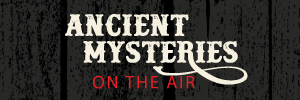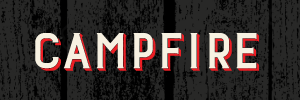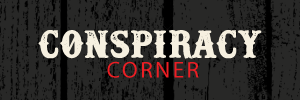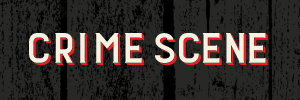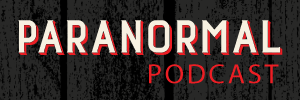Jan 21, 2022
Robert Bosnak joins us to talk about Alchemy and how it relates to our lives today.
You can find his Red Sulphur series of books and other books at Amazon: Robert Bosnak Books
Thanks Robert!
TRANSCRIPT
Please note we do not guarantee 100% transcript accuracy. The below reflects a best effort. Thank you for your understanding.
Jim Harold
Where we came from. Where we've been. They're eternal questions
that say a lot about where we're going as the human race. Welcome
to Ancient Mysteries on the Air.
Welcome to Ancient Mysteries on the Air. I am Jim Harold, and so glad to be with you once again. And today, we're gonna have an interesting discussion about-- well, if you talk about an ancient mystery, one of the greatest is the idea of alchemy. And the question is, does it mean something to our lives today? And I think our- our guest today would say yes, talking about Robert Bosnak and his group of four books, "The Alchemy Saga Red Sulphur," have recently come out and we're so glad to have him with us. He has been a Zurich trained union psychoanalyst for over 40 years, and he pioneered the embodied imagination method. He's the author of multiple books: nonfiction and fiction translated into a wide variety of languages. He is past president of the International Association for the Study of Dreams, and founder of the Santa Barbara Healing Sanctuary. He organized a score of international conferences among which a series of Facing Apocalypse conferences about apocalyptic imagination in politics, nuclear threat, ecological issues, holy war. His EI technique has been used as a rehearsal method by the Royal Shakespeare Company in Stratford upon Avon. Been there. And the Bell Shakespeare Company in Sydney, he divides his life between Santa Barbara, California, and Sydney, Australia. And we're so glad to have him on the program. Robert Bosniak, welcome.
Robert Bosnak
Hi Jim, thank you very much for having me.
Jim Harold
Thank you for being on the show. I appreciate it. So we talked a
little bit off air about this. And when you think about alchemy,
you think about, you know, at ancient peoples trying to figure out
how to create gold. How in the world does that pertain to us today?
And what is your definition of alchemy?
Robert Bosnak
Well, alchemy indeed is very old. It goes back at least 2000 years
probably before that. And it came from embalming techniques from
metallurgy from herbology. And it was practiced mainly by
physicians. So it had a lot of application in medicine of the olden
days. Why it-- and you're right, of course, that was also the
transformation from lead into gold, because they saw everything as
alive. Every-- the whole world was alive, and metals were living
beings. And lead was seen to be a sick metal, and they would heal
the sick metal. And when the sick metal would be healed, it would
be gold, because gold was the healthiest of metals. Gold was the
seed of the sun. That is where everything comes from. Now why would
it be useful today is that the processes of alchemy are very much
processes that go on in our lives all the time. Like for instance,
there is a process called, dissolution, falling apart. Well, we all
know what it's like to fall apart. There is a process of
sublimation when something is coming up, and you cannot really do
anything with it. So you have to hold it, and hold it, and the
pressure builds up. And those kinds of terms and notions are very
useful to understand our own psychology. So that's how alchemy
entered into my field, which is the field of psychoanalysis. It
entered into that field, and it became extremely practical to talk
about deep processes in our imagination. Because alchemy, of
course, very much is imagination, because they didn't know very
much about matter. So what they knew was, they saw their
imagination. So this is about the depth of the imagination, what
happens there.
Jim Harold
So, for example, the gold making process that is just one
manifestation of alchemy-
Robert Bosnak
Correct.
Jim Harold
--that is not the whole host of it. So, in other words, in our own
lives, alchemy could be creating abundance, health, whatever it may
be-
Robert Bosnak
Correct.
Jim Harold
--out of the current situation, is that right?
Robert Bosnak
That is correct. And alchemy goes from the perspective that we all
have an innate desire to create value. Now of course, you can try
to create value by way of getting a lot of money. You can create
value by having a life that has meaning. You can create value in
many different ways. But there is, according to alchemy, a systemic
desire to create value, and to re- and to refine oneself. So the
desires that you have to become more subtle, to become more
refined, to become more valuable. Those are, by themselves,
alchemical desires that exist in the body that we all have.
Jim Harold
Well, it's interesting, it reminds me of this. You see very
successful, wealthy people. And often I'll hear people say, "Well,
if I had that much money, I wouldn't bother. I would just sit on an
island and drink pina coladas."
Robert Bosnak
Oh, no!
Jim Harold
But people have this- this innate-- I think, most people to leave
something or have some kind of legacy or do something other than
just make money. Sure, a lot of people, most people, would like to
be wealthy. But- but above and beyond that, I think that it's one
of those things that w-- and I haven't achieved it, so I don't know
from experience, but it would seem to me that that would be great.
Could be bad, but probably great. But- but you still need more.
Robert Bosnak
Yes. And I, in my practice, I've worked with people who have
amassed great fortunes. And by itself, it does not make you
necessarily happy. It is something that can help you, and it makes
life more pleasant, that's for sure. It can make life more
pleasant. And-- but it does not give you a sense of value and a
sense of meaning. You can sit on a billion dollars and feel that
your life is utterly meaningless. So the sense of the quest for
meaning, which in alchemy would be the quest for gold, is so deep,
ingrained in us that even a billion dollars cannot make it-- cannot
satisfy it.
Jim Harold
Now, you devise something that is actually trademarked. And it's
called, "embodied imagination," if I'm correct. Can you explain
what that is, and how that connects to the principle of
alchemy?
Robert Bosnak
Embodied imagination goes from the perspective that in the deep
imagination, our body is always activated, our body is always
influenced. So for instance, if you are in- in an imagination of
sadness, for instance, you feel really sad because of something
that has just happened to you, and you feel really sad. Your whole
body is sad. It is not just something that happens in your mind,
when you're in that sad image. Like, for instance, you are sad
because of something that happened 10 years ago, and suddenly,
you're sad about that, again; when you're in that image, your whole
body is in that state. So I'm interested in the way that the body
and bodies' images-- the way that the body embodies emotion. And
that is very important in alchemy, because all these different
metals that they're talking about are emotional states. Like for
instance, copper, is the seed of Venus. And Venus is the goddess of
love and beauty. So when they're talking about copper, they're also
talking about love. And when they're talking about copper oxide,
then they're talking about the way that love is affected and can
turn bad and difficult. And then they say you take that copper
oxide to make something new and make something even better. So in
my therapy practices, I have people who come in and have all these
problems with love, and from these problems with love, we make
something more valuable. And that is- that is alchemy inference,
and lead has to do with depression and sadness. And Jupiter is the
god of tin, and that has to do with power. And then there's iron
that is ruled by Mars, which is about aggression. So all these
metals are emotional states, they are embodied states. So that's
the connection.
Jim Harold
Now, how does this, or does this, relate at all to something like
the law of attraction? I mean, frankly, my-
Yes.
--because myself, I believe in it to a point- to a point I believe in it. In the sense that, and again, you may disagree or others may disagree, I think if you sit in your house, and you look out the door and say, "Boy, I hope a Mercedes Benz appears in my driveway." I- I'm skeptical whether that's going to happen. But if you make substantial efforts in whatever your business is, or whatever your life's work is, and those kinds of-- and one of the things you want to achieve is some kind of prosperity or something, and you have a positive thought process about it, in addition to hard work, then I think it makes-- every time I've gone into something with a good attitude, it's turned out pretty much better than it did when I went in with a bad attitude. It's kind of as simple as that. What are your thoughts?
Robert Bosnak
The law of attraction is very old. It is the notion that everything
in the universe has attraction to each other. And that became, when
Newton added calculus to it, it became the laws of gravity; that
everything is attracted to each other. And I think that if you are
able to work profoundly on yourself and on the world around you,
then you can become, thereby, more compact and stronger, and you
can become more magnetic. And as you become magnetic, you begin to
attract more things to you, and you can give more to the world. So
yes, if you are able to make yourself more compact, more focused,
more penetrating, more involved with the world and with others
around you, as you do that, your- your magnetic function increases,
and you begin to draw things towards yourself. I do believe that
that is possible. But you have to go the other way also, and see
that if something goes bad with you, like for instance, you- you
get cancer or something like that, or something bad happens to you.
It's not your fault.
Jim Harold
Right.
Robert Bosnak
Because the problem with people that feel that everything-- they
can make everything happen, they suddenly feel very guilty when the
opposite begins to happen.
Jim Harold
Right.
Robert Bosnak
So that is a very dangerous aspect of--
Jim Harold
I'm so glad you said that, because that worries me anytime we talk
about something like the law of attraction. Is this feeling like
well, if you have some horrible illness, or you've gone bankrupt or
something?
Robert Bosnak
That you're the cause of it.
Jim Harold
Yeah, yeah, I always worry about that. I'm glad you mentioned it's-
it's not your fault.
Robert Bosnak
Very, very dangerous. That's a-- that's because then, you're not
only sick, but you're also guilty, and you can't, feeling guilty
doesn't help you when you're sick.
Jim Harold
Now, I understand you talk about physical intuition. I think I know
what you mean by that, but explain it, explain what you mean about
physical intuition.
Robert Bosnak
Physical intuition is something that I have been very interested
in. The way that your body responds to certain- to certain external
situations, and that you can know about external situations by way
of your body. The best example of it is the greatest physicist of
the second part of the 20th century. His name was Richard Feynman.
Richard Feynman, who worked on the Manhattan Project, he invented
quantum computing, something that we're still trying to develop.
He- he would work-- he was a quantum physicist. And so he would
work on quantum problems with his whole body. When students would
come in, he would be rolling on the floor and waving his arms,
because what he said is he could feel and he could sense in his
body, what he called, the wiggle wiggle and jiggle jiggle" of the
subatomic particles. And as he began to feel them, and became
identified with them, and was in their world, then he began the
mathematics. So he first started with a whole physical intuition to
understand the world around him. And I think that a lot of people
do that. I think that people who work in the stock market, and
really can feel the stock market, in their body, they work on
physical intuition. They don't- they don't think- always think
things out. They sense that there's something going on, and they
can feel with their body, what is going on, and then they begin to
invest on the basis of that. And so I think that physical
intuition, in relationships, you can have a physical intuition what
is happening with a person, a person walks into your room, and you
immediately feel upset, and you weren't upset a moment before.
That's a physical intuition that there's something happening to
this person. So we use physical intuition all the time.
Jim Harold
When it comes to modern day alchemy, how does one practice that? Is
it- is it meditation? Is it some number of incantations? Is it
visualization? Is it all of those things? How- how can one become a
modern day alchemist?
Robert Bosnak
The-- alchemy is always talking about body. It's called corpus. I
do alchemy from the Latin text. And so it's- it's called corpus.
And so everything is about body. So the way that you can- can start
doing alchemy is to be aware of what's going on in your body. And
feel where things are happening in your body. How your body is
affected by things. How, when you hold particular things in your
body, other parts of your body begin to respond to that. And you
can begin to feel your body as a vessel, as a vessel that is
containing processes, that is containing substances. Then you begin
to think, and you begin to feel, things that happen to you, not
just as- from a victim perspective, "Oh my god, this happened to
me, and that's so terrible!" But you begin to take it as your
material. This is the material that you were given. And now you
begin to work on that material, you begin to feel it in your body.
And as you do that, that material can begin to refine, and you can
begin to deal with it in an easier way. Because you move out of the
sense, "I can't do anything! I'm the victim of life!"
Jim Harold
Mhm.
Robert Bosnak
You become an active participant in life, and you begin to work on
it, by way of your body. And that's also what I describe in my
novels. Red Sulphur, is about an alchemist family, who is in
possession of red sulfur, which is- which is the center of all
creativity is the core of all creativity, is also called the
Philosopher's Stone. Or, as we know, from Harry Potter and the
Sorcerer's Stone. It is the stone that can transform everything.
And so-- and they are being pursued by kings and by phantoms.
Everybody wants to have possession of it. And so they have to carry
this through- through the world. And at the same time, there's a
plague going on. And so, they have to make medicine for the plague
and to heal the plague. And so, that's what they're involved in.
And this is all in a setting of a very romantic love story. And
also similar to- to Marvel Comics battles for- for the world. And I
think that it's a very lively description of alchemy. And in the
end of the book, I give a whole glossary of alchemical terms, so
that people can also learn alchemy from it.
Jim Harold
Now that's interesting to me. And we've had-- we've spoken to
people who write fiction books, but-- and part of it is to
entertain and give folks a good narrative, a good story, of course,
that's a must, but also to talk about some truths.
Robert Bosnak
Yes.
Jim Harold
How did you straddle that and how did you mix the two make it both
entertaining, also enlightening?
Robert Bosnak
It began with a- with a letter that I found, which was published,
of one of the greatest philosophers of the second millennium,
Benedict Spinoza. And so, Spinoza wrote that he had gone to an- a
goldsmith, and found that a transmutation that was-- had happened
an alchemical transmutation, actually might have been true. And so
then, I went from the perspective of what if Spinoza was not easily
fooled? He was a rational philosopher. What if Spinoza, and many
others in that period in 1666, who said this actually happened,
what if, if that's true? So then, I begin to write about this
transmutation and actually what happened around it, and how it
works for medicine, and how it-- how different it is than the
philosophy of science. And so, what I'm- what I'm the-- as you say,
the good story is the first thing. It's a great story. And then in
that story, you also learn an attitude that was different from the
scientific attitude. It was the attitude where people were
participating in life in a very different way, because everything
around them is alive. Everything around them is alive, and you're
participating in the life of the world around you. And then that
changed in science where we are the only ones alive, and everything
else is dead. And so, thereby, we- we became distant from material.
But in the world of alchemy, we participate in the- in the material
world. So we are part of the ecosystem. And so that's a very
different way of looking at it. If we are part of the ecosystem, we
can't just start chopping down rain forests, because we are part of
it. We are part of this ecosystem. And that is the alchemical
notion. And that's what I tried to get across.
Jim Harold
Now. Magic. People, you know, that's a very loaded word, when you
say something is magic. But I mean, alchemy, in a way would seem to
me to be magic. Has there been an example in your life that that
you've felt magic, real magic, present?
Robert Bosnak
I think that magic happens every night. Magic happens with every
dream, every dream actually, is a form of magic. Because there's a
whole world that is being created, that's a non-physical world that
you participate in, that is an entirely real world. So it's the
creation of a world, which is the definition of magic. So magic
happens every night. And I think that everything that we don't
understand, we call magic. Like, for instance, if you ask a person
who has never been out of their little village, in the woods,
somewhere in a place that is far from Western culture, and you put
them on an airplane, they will feel that they are at a magical
environment. So it depends what you mean by- by the word- word
magic. I have seen in my life, that many things that- that I was
feeling and was working on in my inner world, then started to
manifest in the outer world, as you were talking about before, with
the law of attraction, and think that's a form of magic. I think
that there is things that you know, about other people, or about
the world that you really couldn't have known. This kind of
intuition that we were talking about. That's a form of magic. And I
think that I owe my whole life to magic. There is-- I had a very
severe physical illness, and the doctors gave me up for dead, and
suddenly I realized that I was in the wrong life. This is not my
life. And I really felt that very deeply. That was a magical
moment. And then my- and then my illness started to turn around,
and I became healthy again. So I think that everything... that
there's so much magic around that we cannot even see it anymore.
There's so much magic.
Jim Harold
I would say that our very existence is magic. If you really think
about it.
Robert Bosnak
Absolutely. Totally.
Jim Harold
It's amazing. The tolerances that have to be achieved for us to
live on this, relatively small, blue ball is just amazing. And-
Robert Bosnak
Yeah, that- that and your mother had so many eggs-
Jim Harold
Yeah, that's right.
Robert Bosnak
-and your father had so many sperms. That's gazillions and
gazillions. The permutations are endless. And you were born. That's
the math, that's a miracle!
Jim Harold
Yes, my parents really hit the jackpot with me. No, I'm just
kidding. (Laughs).
Robert Bosnak
(Laughs). I'm glad to hear that! Self-confidence is a good
thing.
Jim Harold
That's right. Well, you'd have to ask them. But now, another-- a
couple of other things you talked about. I know our time is
somewhat limited, but you did a lot of work on the idea of
apocalypse. Now, I'm in my early 50s, so I grew up-- I mean, people
now don't think about it as much, but it's still big danger-
Robert Bosnak
Oh, oh, god no, we're still in the middle of it.
Jim Harold
-the idea of nuclear war. We're seeing now a global pan- pandemic,
which has been horrible, but actually could be so much worse.
Robert Bosnak
Mhm.
Jim Harold
So, you know, sometimes I think, apocalypse it is- it is-- you talk
about the climate or whatever it is. Apocalypse is, you know, it's
certainly within the realm of possibility. The recent movie, it was
on Netflix, Don't Look Up, that- that was a very chilling look at
apocalyptic thinking and an apocalypse in the world of that
movie.
Robert Bosnak
Mhm.
Jim Harold
Can you talk to us a bit about the idea of apocalypse. Why has it
always been such a fascination with mankind, even before we can
physically destroy ourselves? And- and where- where apocalyptic
thinking is today?
Robert Bosnak
The word apocalypse means revelation. So it's the revelation of a
new world. But in order of- the- for the new world to be revealed,
the old world has to be destroyed. That's- that's basically the
notion of apocalypse. So, we are using it very much in the context
of destruction of the world. But there are many other aspects of
apocalypse. Holy war is an aspect of apocalypse, because at the end
of time, there will be a holy- holy war between good and evil.
Polarization between good and evil, which we are in the middle of,
we are totally inside a polarized system, we're living inside a
magnet with two poles, and you're pulled in two different
directions. That is an apocalyptic image. The destruction of the
environment can be seen in the perspective of doom. And in the
perspective of apocalypse, when I organized the first Facing
Apocalypse Conference in 1983, and we were-- there-- it was
attended by the chairman of the Senate Foreign Relations Committee.
And he said, "I will help you organize this conference in Moscow,
because this should be in Moscow." And I said to the conference,
"We're going to do this in Moscow, in 1985." People came running up
to me and said, "You have to do it earlier," this was 1983, "we
have to do it earlier, because in 1985, we will be in nuclear
winter." So that is apocalyptic thinking. Apocalyptic thinking is
very dangerous, because it exacerbates situations that are already
very dangerous. Like, for instance, the whole notion of global
warming is a very dangerous situation. I believe that we are going
to be dealing with climate change for the next few 100 years. We
have to be able for hundreds of years to deal with this. If we put
it in the context of, this is the end of the world and we're going
to-- mankind is going to hell in a handbasket. If you go from that
perspective, you cannot deal with it for hundreds of years, which
is how long we will have to deal with it. It has to become like
brushing your teeth. We have to do it every day, we have to take
care of the world every day. But if you put it in a context of
doom, if you put it in the context of apocalypse, you can't do
anything about it. We have the same problem with holy war. If you
have the notion that you are good and the others are evil, then you
can never get to compromise. And at the moment the polarization
that we're in, in the United States of America, if-- that
polarization is purely apocalyptic, and people cannot think about
coming together. Things that 15-20 years ago would have been easy,
like creating infrastructure in the United States, that has
suddenly become a polarized issue, because we're living inside of
apo- apocalyptic polarization, where there's good and evil. Where
one party says we're good, and the other party say we're good, and
then the other party is evil. That is pure apocalyptic thinking,
and it is dangerous as hell.
Jim Harold
Well, it's interesting. I remember, I mean, I was a teenager, but I
remember in the 80s, around the time you're talking about, there
were movies like, Testament, and, The Day After. That was, that was
a huge one.
Robert Bosnak
Huge.
Jim Harold
Where they talked about the-- and that really was the thing, is
we're all gonna- we're gonna die in a nuclear holocaust. And you
know, as a young kid, I internalized that and figured, well-- and
I'll tell you now, I tell you how it stuck with me. I gotta be
honest, every time you have an unexpected power outage, or
something like that, that's the first thing I think. And that tells
you where my-- and that was from growing up at a time, and I tended
to pay attention to stuff, growing up in a time where I told- I was
told that the Soviet Union was going to nuke us at any moment.
Robert Bosnak
Right.
Jim Harold
And I internalize that. And yeah, I think, you know, you can
recognize it. I see what you're saying, you're saying you can
recognize a problem, not denying the problem-
Robert Bosnak
Yes.
Jim Harold
-but deal with the problem rather than saying, "the sky is falling,
and we're all going to die!"
Robert Bosnak
Exactly.
Jim Harold
The idea is to deal with the program, and try to address it in your
view.
Robert Bosnak
Totally. Yeah, that's exactly my view.
Jim Harold
So, where can people find your series of books? And I know that you
do much more than that with your websites and so forth. And we
haven't even touched on your dream work. Where can people find the
various things that you do, including your books?
Robert Bosnak
Okay. They can find all my teachings at jungplatform.com. Jung.
J-U-N-G platform dot com. And that-- you can go to teachers, and I
am there. Robert Bosnak. And my novels Red Sulphur, you can find on
Amazon, and just look under, Red Sulphur, and that's written,
S-U-L-P-H-U-R. That's the old spelling, Red Sulphur, and you can
find it under my name in Amazon. It's three volumes, four books in
three volumes. And I very much hope that people will go there, and
buy it, and write reviews about it. I am very eager to hear what
people think about it.
Jim Harold
Very good. Our guest has been Robert Bosnak. We've talked about
alchemy and a host of other issues. And we're so glad to have had
him with us today. Robert, thank you for joining us.
Robert Bosnak
Thank you for having me.
Jim Harold
And thank you for tuning in to the program. We appreciate it. We
will talk to you next time, and I hope that you have a great week.
Bye, bye, everybody.

